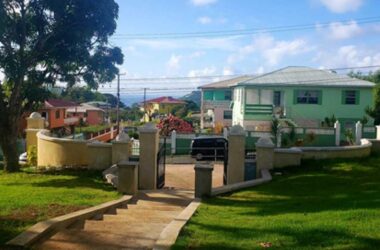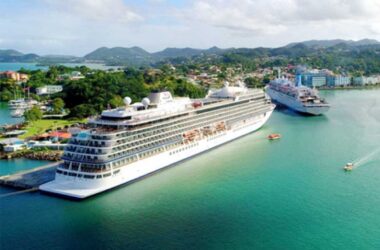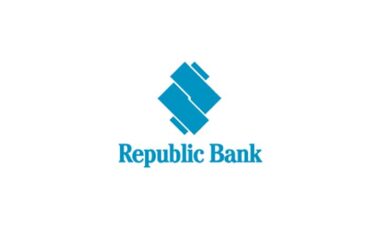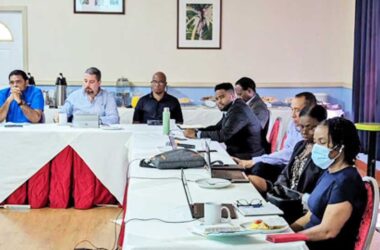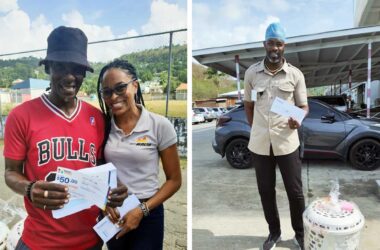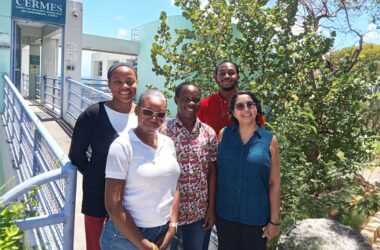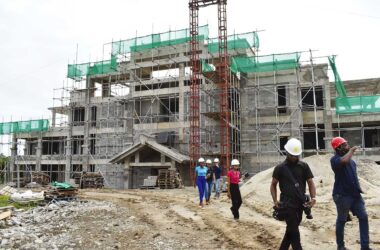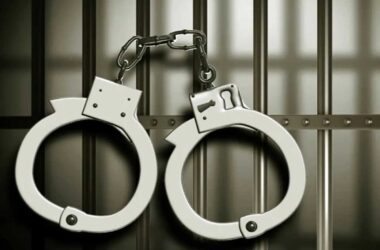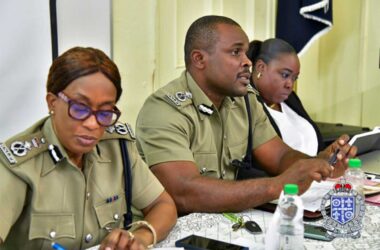
Saint Lucia is still struggling with plastic pollution and waste management issues despite efforts over the years to deal with those problems.
Dawn Pierre-Nathoniel, Chief Sustainable Development and Environment Officer at the Department of Sustainable Development indicated this much recently.
Speaking on the importance of the Marine Litter Management Action Plan (the ML-MAP), Nathaniel noted that marine litter has the ability to affect just about every sector in Saint Lucia.
The Government of Saint Lucia held a high-level meeting last year to develop a National Source Inventory on plastic pollution and marine litter and a Marine Litter Management Action Plan. The plan received support from the United Nations Environment Programme (UNEP).
A technical consultation workshop was also hosted last year which brought together technical stakeholders who shared their experiences and knowledge to help guide the early phase of the project.
The development of a national source inventory will enable officials to identify the most important sources of marine litter entering the environment, waterways, and coastal seas. The national inventory is expected to encompass statistics and databases on (plastic and other) product life cycles and flows, waste sources and streams, and data gathered through monitoring of freshwater and wastewater, coastal and marine environments.
By bringing different data sources together, Saint Lucia’s selected approach will provide the basis for strategic action. In turn, the management action plan for marine litter management will help build capacity and raise funding, map progress and identify existing frameworks and gaps, track compliance with guidelines, and be the foundation for inter-agency coordination.
“Marine litter, plastic pollution, waste management… remains a critical issue that the world is facing and certainly Saint Lucia. We’re an island (and) we depend on tourism as one of our mainstays…the two just do not go hand in hand. It’s not just an eyesore in terms of visitors and how it can affect us economically, but it can affect us socially. We use the beaches etc.; the environment in terms of recreation…,” Pierre-Nathoniel said in a panel discussion this week, noting that “it’s a problem in terms of aesthetics, other aspects like biodiversity conservation and ecosystem uses.”
“We recognize that there is more than one way to tackle the issue… it is not simply using one method, and this is why the ML-MAP has a number of pillars. There are five pillars. There are pillars to deal with the policy and regulatory framework looking at pieces of legislation that we’re still trying to push like our Beverage Containers Bill or our Marine Pollution Act etc., and noticing that these are important in terms of the policy direction for the country where waste is concerned,” she explained.
“But looking at our second pillar for example, that speaks specifically to waste minimization aspects to do with just not reuse and recycling, but also segregation and composting. Our third pillar… is about clean-up campaigns, something we still have to do because people are not doing what they’re supposed to do,” Pierre-Nathoniel said, noting that the fourth pillar looks at partnerships.
That is a fundamental part of the plan she said, “in that we aren’t able to do this alone as a government. It has to be the government, civil society, the private sector, business organizations, the media, students—everyone… for example (being) able to partner with entities such as Massy in the single use plastic bag… so partnerships that’s a very important component of the plan.”
Raising awareness is also pivotal, Pierre-Nathoniel said.
According to her, “a lot of what we do when we generate infographics or we do campaigns and we have public awareness… to try to encourage people to do the right thing… none of these pillars (ML-MAP pillars) really work alone. They have to work in tandem with each other in order to be effective and it requires a real collaborative effort to get somewhere.”
Citing the global assessment of marine litter and plastic pollution titled Pollution to Solution (2019), the UN Environment Programme highlights that plastic accounts for 85% of marine litter and warned that by 2040, volumes of plastic pollution flowing into marine areas will nearly triple, adding 23-37 million metric tons of plastic waste into the ocean per year.
In 2022, Saint Lucia and other members of the UN Environment Assembly agreed on a resolution to end plastic pollution and forge an international legally binding agreement by 2024.
Bishnu Tulsie ML-MAP Consultant also noted that “there has to be international cooperation as well because marine litter is really a transboundary problem.”
Regarding Saint Lucia’s marine litter problem, Tulsie said “the single biggest problem is that we do not dispose of our waste the way we should.”
“If we could do that then most of the problem is gone. Clean ups… a lot of these have been happening but they are not coordinated, they are not consistent and therefore the effort is diluted. Producing the ML-MAP focuses attention on specific areas of interventions which stakeholders identified as the priority ones and… we can get a more structured approach to managing waste. I must say that Saint Lucia has a really good waste management collection system; the problem is too much waste does not enter that system,” Tulsie said.
“It is leaked out of the mainstream collection system and they end up in the environment… the rain water would take them into the rivers and they end up in the sea…so this is really about having a structural approach to dealing with a problem that except for the work of the Solid Waste Management Authority, has been done in an uncoordinated way,” Tulsie added.
Heavy rains in Saint Lucia have emphasized a need for the improved management of marine litter and plastic pollution, Minister for Sustainable Development Shawn Edward said in 2022.
“We have adopted a National Ocean Policy, which has, as one of its outcomes, maintaining and improving the integrity of the marine ecosystem,” Edward said.
“The policy recognizes that pollution including marine litter, plastics, sewage, oil and chemicals affect our transition toward a blue economy and impacts the value of the goods and services provided by the ocean,” he added.


